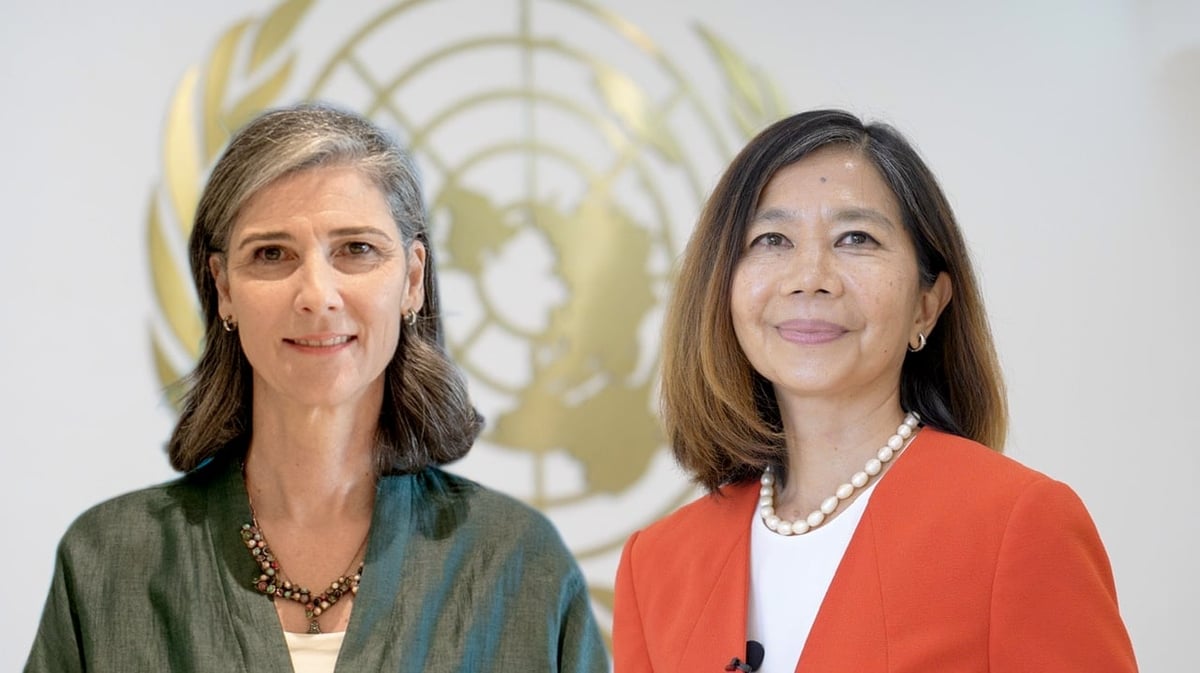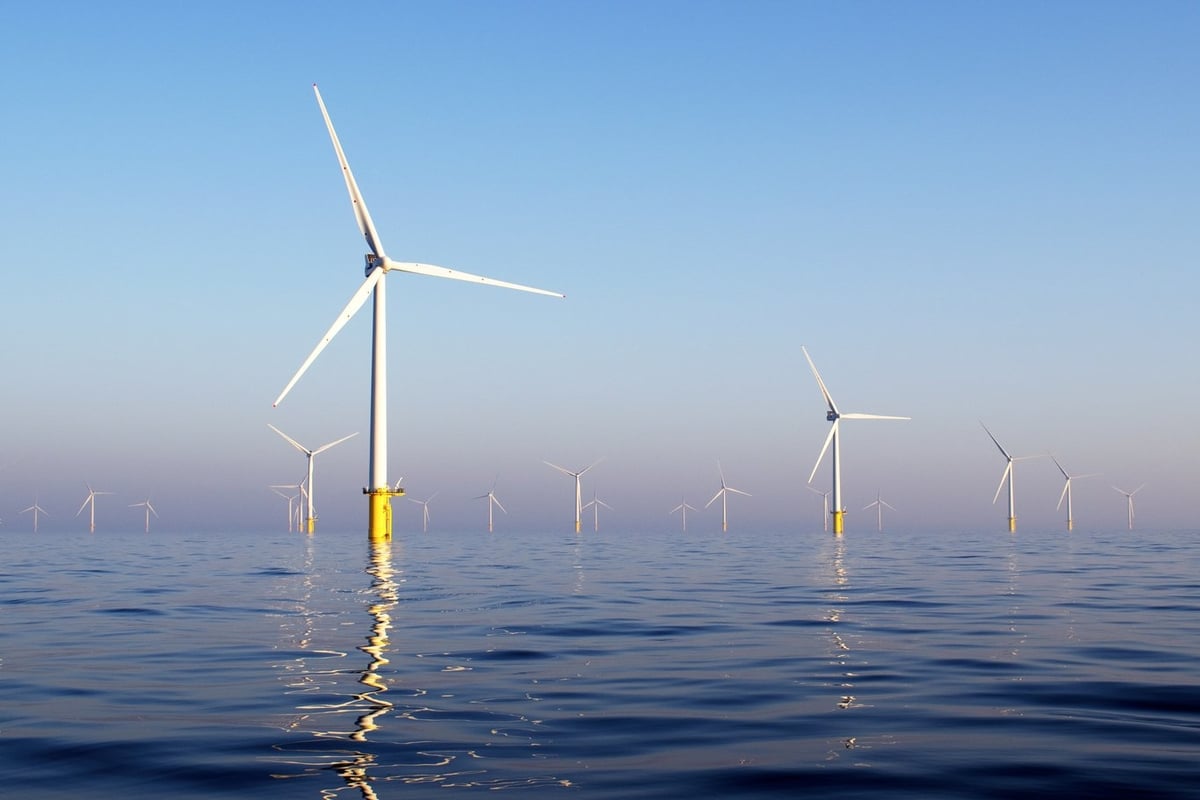December 17, 2025 | 02:20 GMT +7
December 17, 2025 | 02:20 GMT +7
Hotline: 0913.378.918
December 17, 2025 | 02:20 GMT +7
Hotline: 0913.378.918
This year marks a pivotal milestone for global cooperation. We commemorate 80 years since the founding of the United Nations (UN) and reflect on a decade since the Paris Agreement under the UN Framework Convention on Climate Change (UNFCCC). It is also nearly 80 years since President Ho Chi Minh proclaimed Viet Nam’s independence in Hanoi on 2 September 1945. These moments are not just anniversaries – they represent a common ambition. They are reminders that real progress is possible when countries work together on shared, complex challenges. They also reflect a long-term commitment to building more peaceful, resilient, and inclusive societies.
As global attention turns to the 80th Session of the UN General Assembly, the UN Secretary-General issued a clear and urgent message: “Countries that cling to fossil fuels are not protecting their economies - they are sabotaging them. Driving up costs, undermining competitiveness, locking in stranded assets, and missing the greatest economic opportunity of the 21st century. Renewables are here to stay because they are the foundation of energy security and sovereignty.”
Viet Nam stands at the heart of that opportunity.

The United Nations in Viet Nam calls for collective action to join the global movement towards supercharging the clean energy age. Photo: UN in Viet Nam.
Two and a half years since the Political Declaration on the Just Energy Transition Partnership (JETP) was announced, Viet Nam is moving from ambition to action. Major policy reforms are advancing, including the updated Electricity Law, the revised Power Development Plan VIII, and new regulations on direct power purchase agreements and the self-consumption of solar power. These reforms are laying the foundation for cleaner energy, economic diversification, and long-term energy security.
Equally significant is Viet Nam’s progress on implementation. Seventeen JETP-aligned projects have been screened and agreed through a joint process involving the Ministry of Industry and Trade (MOIT), as Standing Agency of the JETP Secretariat, alongside co-leads of the International Partners Group (IPG) and the Glasgow Financial Alliance for Net Zero (GFANZ) Secretariat, with support from UNDP in its role as Secretariat Support Agency (SSA). Together, they represent a little more than US$7 billion in potential investments. Of these, three projects, valued at over US$700 million, have already secured financing agreements in principle from IPG members that will expand renewable energy and grid capacity, energy storage, and improve the reliability of clean energy supply. As the next step, international partners are initiating project-level engagement to explore financing pathways. The aim is to test and refine the process through real-time learning on selected projects before scaling up.
The launch of the JETP website underscores Viet Nam’s commitment to transparency and coordination. The online portal is designed to facilitate project submission and grow the pipeline of JETP-aligned projects.
However, implementation demands continued effort.
To sustain this momentum, stronger cross-government coordination and more enabling financial frameworks will be essential. The UN Secretary-General noted, “to unleash the full force of finance – driving investment to markets with massive potential (…) demands bold national policies, (…) and (…) to drastically increase the lending capacity of multilateral development banks, making them (…) better able to leverage massive amounts of private finance at reasonable costs”. While important progress is being made, implementation still faces practical constraints related to administrative procedures, permitting, grid integration, local capacity, as well as limited flexibility in mobilising concessional and blended finance, which must be addressed. These issues are pressing not only for energy transition goals, but also for broader national priorities, such as sustaining high GDP growth, diversifying trade partnerships, ensuring energy security, and advancing clean energy technologies to support export competitiveness.
This is where global cooperation and partnerships matter. The US$15.5 billion pledged by the IPG and GFANZ members reflects strong confidence in Viet Nam’s transition. But as experiences in other JETP countries have shown, the real test lies in delivery. Concessional terms and conditions of finance, proactive cooperation, risk-sharing tools, and tailored technical assistance are essential to unlock progress on complex challenges, including coal transition.
Viet Nam’s energy transition presents an opportunity to show how climate ambition can be realized through national leadership, international support, and a focus on people-centred development.

Viet Nam stands at the heart of a opportunity to transition from fossil fuels to renewables. Photo: Khanh Ly.
Just as important is ensuring the transition protects workers and communities, promotes social dialogue and stakeholder engagement, and ensures decent work, social protection, and access to opportunities for all. In provinces such as Quang Ninh, Ninh Thuận, and Bình Thuận, energy reforms are already reshaping local economies. Workers, women, youth, and small businesses must be active participants in designing and benefiting from this shift. That means providing new skills, targeted support, and sustained dialogue with the communities most affected.
The United Nations team in Viet Nam is wholly committed to supporting this process. WHO, ILO, UNESCO, UNICEF, and UNIDO are contributing to efforts that link energy reforms with health, labour protections, future-ready education, and decarbonisation of the cement sector. FAO, UNFPA and UN Women are supporting rural women, who make up 64 percent of agriculture workers and are among the hardest hit by climate disasters. These efforts include integrating prevention of gender-based violence into disaster response and supporting women’s leadership in disaster preparedness. UNDP is working with national counterparts to support the integration of just transition principles into JETP project screening, monitoring, and investment appraisal, ensuring social equity is embedded throughout implementation. UNDP is also supporting the Government, IPG and GFANZ in implementation of the JETP as the JETP SSA, leveraging the UN’s impartiality in enabling the partnership.
Viet Nam’s energy transition is not only about reducing emissions. It is about advancing energy security, industrial competitiveness, and inclusive development in a rapidly changing global economy. As a G35 country, Viet Nam’s progress is being closely watched for its potential to serve as a success model of how emerging economies can align climate action with development priorities.
The upcoming UNFCCC 30th Conference of Parties (COP30) in Belem, Brazil will be a defining moment – not only for global climate ambition, but also for demonstrating leadership through action. The third Nationally Determined Contribution (NDC 3.0) presents an opportunity for Viet Nam to signal its enhanced ambition, translate policy into investment-ready plans, and, as expected, incorporate JETP implementation among the contributions. A strong NDC 3.0 highlighting JETP implementation progress, strengthened sectoral emissions reduction pathways, and practical carbon pricing mechanisms would reinforce Viet Nam’s credibility as a climate leader among emerging economies.
Viet Nam’s JETP is more than a financing pledge. This partnership is a platform for international cooperation and a model for how national ambition can drive global impact. The path ahead is clear: accelerate technical assistance, streamline project approvals, and deliver financing that supports just, inclusive outcomes.
Progress must not be stalled by perfection – or lost to inaction.
With sustained political will, coordinated international support, and a shared focus on implementation, Viet Nam can lead by example. Not just in the region, but across the Global South. The next six months will be decisive.
The choices made today will shape the energy, economy, and environment of tomorrow. Let us seize this opportunity, together.
UN Resident Coordinator in Viet Nam | UNDP Resident Representative in Viet Nam

(VAN) UNICEF and IOM receive this aid and provide essential services to assist families affected by recent storms and floods.

(VAN) Circular economy is regarded as a suitable pathway for Viet Nam’s fisheries sector, helping to improve production efficiency, optimize resources, and reduce environmental pressure.

(VAN) Vietnam and the UK are promoting cooperation in agriculture, environment, renewable energy, and green transition, with the goal of achieving Net Zero.

(VAN) Switzerland highly values carbon credit cooperation potential with Viet Nam and hopes to begin negotiations under Article 6 of the Paris Agreement.

(VAN) Northwestern women not only preserve traditional weaving but also leverage their cultural identity to create livelihoods, while spreading it to tourists through authentic experiences.

(VAN) Based on research results and production practices, the international scientific community evaluates UNI 126 as one of the world's best Panama disease-resistant banana varieties.

(VAN) More than 10,000 hectares of Cavendish bananas (Philippines), once abandoned due to the Panama Fusarium wilt Tropical Race 4 (TR4) disease, have now been brought back into production by switching to the Formosana variety.